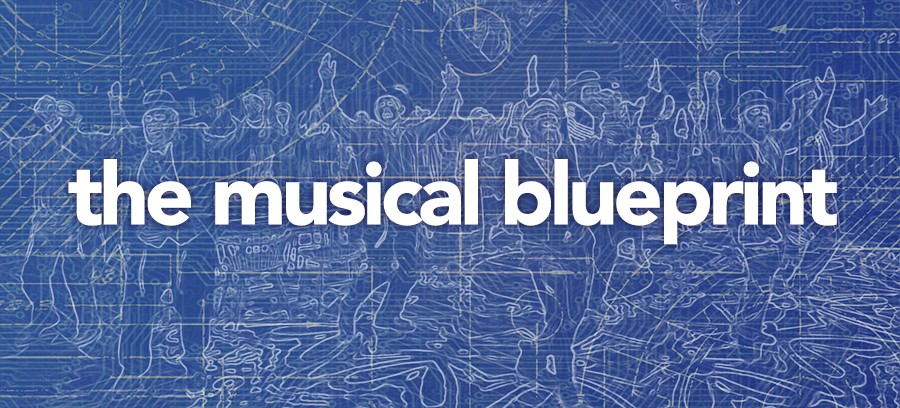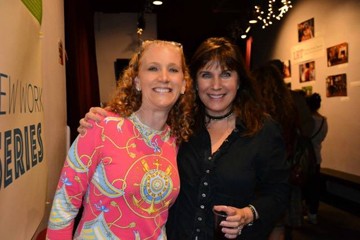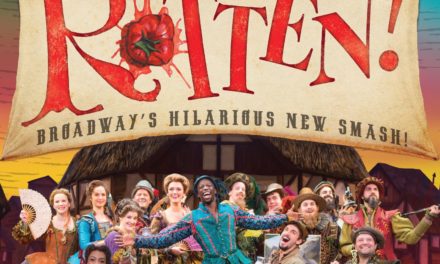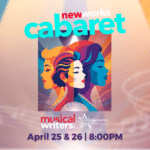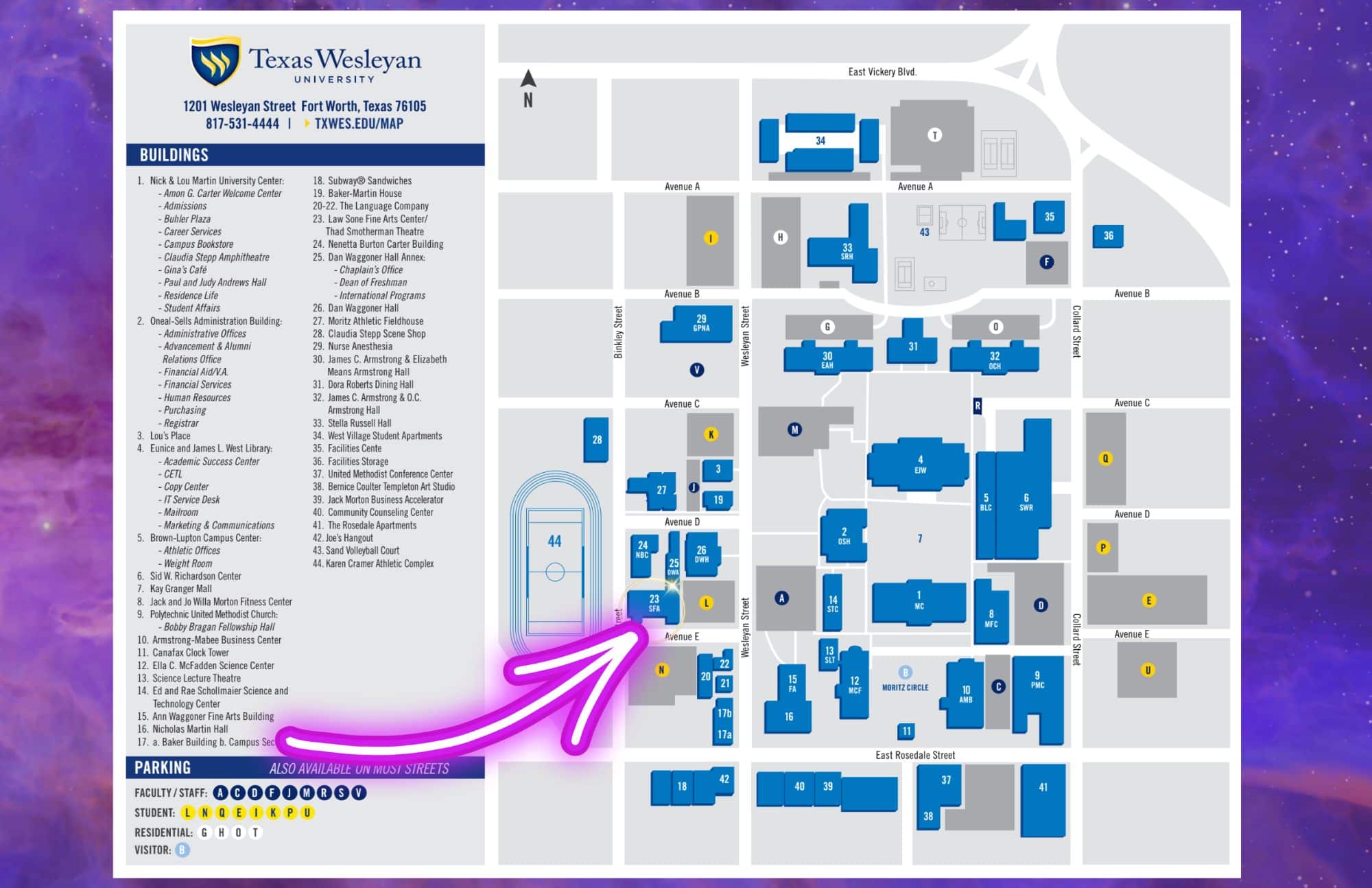by Jim Miller
So, you’re ready to sit down and write what you hope will be the next great musical.
And, you’re wondering, what’s the blueprint? What makes for a great musical?
Creators, producers, and others have been asking themselves that for years. If there were an easy answer or some magical equation, we probably would see more great musicals than we do. And, making it more complicated is the reality that one person’s “great musical” could be another person’s “overrated wonder,” so it can be very subjective too.
Putting aside differing opinions that all of us have, I’ve given a lot of thought to the question. And, in thinking about musicals that are fairly universally acknowledged to be “great musicals,” one realizes that there is no one element that makes it great. Ultimately, it is the coming together of elements in some almost magical way that makes for a great musical. But, it happens in different ways with every show. A great musical drama and a great musical comedy often work in different ways and for different reasons.
Favorite Musicals vs. Great Musicals
And, before examining some of this, I also have to distinguish between “favorite” musicals and “great” musicals. Shenandoah will always rank as one of my personal favorite musicals ever – it’s clearly in my top five, and, after a number of viewings of different productions over the years, it has always proved to be an exceptionally moving show. But, I’d never think of calling Shenandoah a great musical; it works beautifully for me, but isn’t really distinguished enough to qualify in any way as a great show.
Without getting into a debate about which shows are great and which are not, most theater fans can agree that there are a number of classic and even more recent musicals which are pretty well acknowledged to be great musicals, ranging from the Rodgers and Hammerstein classics to My Fair Lady to Guys and Dolls, Gypsy, A Chorus Line, Fiddler on the Roof, etc. As individuals, we all may like some of them more than others, but they are unquestionably looked at as classics and as examples of great musical theater.
Common Threads in Great Musicals
Connection
So, what are the common threads in these musicals, or, for that matter, any musical that any of us deem to call a great musical? They are all very different. But, let’s start with the word “connection.” A great musical connects with the audience, thus involving us in what is transpiring on stage, allowing us to care about the characters and what is happening to them. We care about Tevye and his family; and, in A Chorus Line, we care about most of these dancers and which ones get the coveted roles.
Let’s look at Fiddler in a bit more detail. It’s a beautifully constructed musical. Tevye is seeing all his beliefs, all the foundations that have made him who he is, questioned. His eldest daughter wants to marry the poor tailor she loves, not the wealthy butcher as proposed by the matchmaker. But, it gets worse; the next daughter wants to marry the “radical” Perchik, and the next daughter wants to marry out of the faith, to one of the Russians. And, finally, the residents are all forced out of their longtime home. The creators have put some powerful monologues for Tevye, in which he talks to God as he struggles to deal with these increasingly more difficult situations. The mix of Tevye’s struggles, with the beauty and sentiment in many of the Bock and Harnick songs, brings about this audience connection. The drama brings us in, then “Sunrise, Sunset” and other songs provides the emotional core so necessary for a great musical.
Transporting
Another common element of great musicals, which is related to the connection factor, is that they are successful at transporting us. By that, I mean they manage to take us away from today and our daily problems and somehow manage to take us mentally and emotionally to whatever time or place the musical is presenting. So, Fiddler transports us to turn of the century Russia. Fair Lady transports us to London, and that includes places ranging from Covent Gardens to Ascotte Gavotte. Hello Dolly transports us to turn-of-the-century New York and an entire world developed by its creators. Ultimately, if the audience isn’t transported and involved, a musical can’t be great.
Compelling Story
The concoction that comes together and manages to transport us is a difficult one to define, though. Often, it is a mix of a great book, fascinating characters, and a great story that does so. Pretty much every great musical starts with one or more of those. For a musical drama, it is essential. Darker shows that qualify as acclaimed musical dramas, ranging from Carousel to West Side Story to Fiddler to Sweeney Todd all tell compelling stories with a range of intriguing characters. And, those stories create dramatic situations that make for terrific theater.
Music
You can’t talk about musicals without dealing first and foremost with the music. Are there any great musicals that don’t have acclaimed scores? Perhaps 1776, which has one of the best books ever. And, even there, the music successfully elevates the proceedings, raising the emotional level on frequent occasions. That’s what great music can do.
Think about what the “Twin Soliloquies” and “Some Enchanted Evening” do for South Pacific. They come fairly early in the show, before we have really gotten to know the main characters. But they instantly elevate the musical, making it soar, and bring its audience in. In all great musicals, there is a moment, or a number of moments, where the music helps the show take flight. Sometimes, as in South Pacific, it supplies that jolt of romance and emotion. Imagine Man of La Mancha (which I personally don’t consider a great show, but it’s success speaks for itself) without “The Impossible Dream.” But, musical numbers can also exhilarate and thrill, as the title number in Hello Dolly and any great showstopper does.
What happens when a musical puts all these elements together and has it all? It makes a connection, it transports, provides strong drama and characters, charm and enchantment, and great music.
My Fair Lady
To illustrate this, I want to look in greater detail at what I think may be one of the best examples of musical theater perfection. It is the last half of the first act of My Fair Lady. My Fair Lady is regarded as one of our greats; from my perspective, the first half of Act One and much of Act Two don’t come close to measuring up to the perfection of those roughly forty minutes in Act One that start with “The Rain in Spain.” It’s a brilliant scene, depicting Eliza’s struggles to speak “proper” English and Higgins’ wearying efforts to teach her. Suddenly, she gets it, resulting in the explosion of excitement that is “The Rain in Spain.”
It is immediately followed by Eliza’s “I Could Have Danced All Night,” a beautiful, classic theater song, with a remarkable mix of waltz, romance, and excitement. Next comes the somewhat comic relief (and visual brilliance) of “Ascotte Gavotte.” Eliza meets Freddy there, and the next number is the show’s best love song, “On the Street Where You Lived.” It’s rather a silly moment, with Freddy lurking outside the Higgins residence, but the song is so strong it almost doesn’t matter. Finally comes the ball that closes Act One.
Eliza’s appearance at the Higgins residence, when she comes down the stairs in her evening gown, with “I Could Have Danced All Night” playing as underscoring, is magical, and it leads directly to the stylish and elegant dance number at the ball. As Act One of My Fair Lady proceeds, we get it all: the building of the drama, great musical numbers that express character, advance the plot, and enhance the mood, plus some lovely visuals. It is the essence of great musical theater. If nothing in Act Two measures up, we are still thankful for the brilliance we get in Act One.
Dreamgirls
A musical that is fulfilling to me from start to finish is Dreamgirls. It is probably my favorite musical, and I also think it is one of our great musicals. While its cinematic staging has always been acknowledged, I think it is the show’s emotional power that really stands out. There are scenes that are absolutely devastating, and there are musical sequences that are ravishing in their beauty. Yes, “I’m Telling You I’m Not Going” is the most well known moment. But, there is so much more, including some beautiful recitative that was, unfortunately, cut from the movie version.
Qualities of Historical Greats
The evolution in musical theater has also had a role in how we look at great musicals. Musicals have evolved from the often mindless fluff in the pre Rodgers and Hammerstein era (with Showboat being a major exception), to the integrated musicals of the Golden Era, which often included both the R & H musical dramas as well as classic musical comedies, to the darker musical dramas, concept musicals, and sung through musicals from the late ’60s into the ’90s, and, more recently, a return of musical comedy. What defines a great musical can be different for each of these types. While shows like Cabaret, Sweeney Todd, Chicago, Dreamgirls, etc., all have well regarded scores and stories, they also represented directorial triumphs and an evolving use of stagecraft to elevate them.
In an earlier era, dominated more by musical comedy, elements like charm and enchantment were what often brought these shows to a higher level. Musicals like Hello Dolly, Carnival, and The Music Man have those in spades. It’s something we don’t get as much of in more recent musicals, but they were critical elements in making many of our classic musicals so memorable.
Connection, the ability to transport, strong drama/stories/characters, charm and enchantment, great direction, and soaring scores all have their roles in making for great musicals. Each great show uses a different formula, but all of them ultimately have several, if not all, these elements present. And, as a result, they ultimately do one more thing: they comment on or observe the human situation and condition. The great musicals all grab something inside us by elaborating on and shedding a bit of light on the human condition.
“The great musicals all grab something inside us by elaborating on and shedding a bit of light on the human condition.”
~Jim Miller
It is why we are able to be transported, charmed, moved, and involved when the lights go down, and why we walk out of the theater exhilirated, thrilled, delighted, and, at times, devastated. We may all differ on which musicals do that to us, but we can agree that there is nothing like the impact of great musical theater. And, who knows: perhaps one of you who is reading this will write one of our next great musicals!
Jim Miller is a life-long musical theater enthusiast and former programming executive for the Showtime Entertainment Group.

